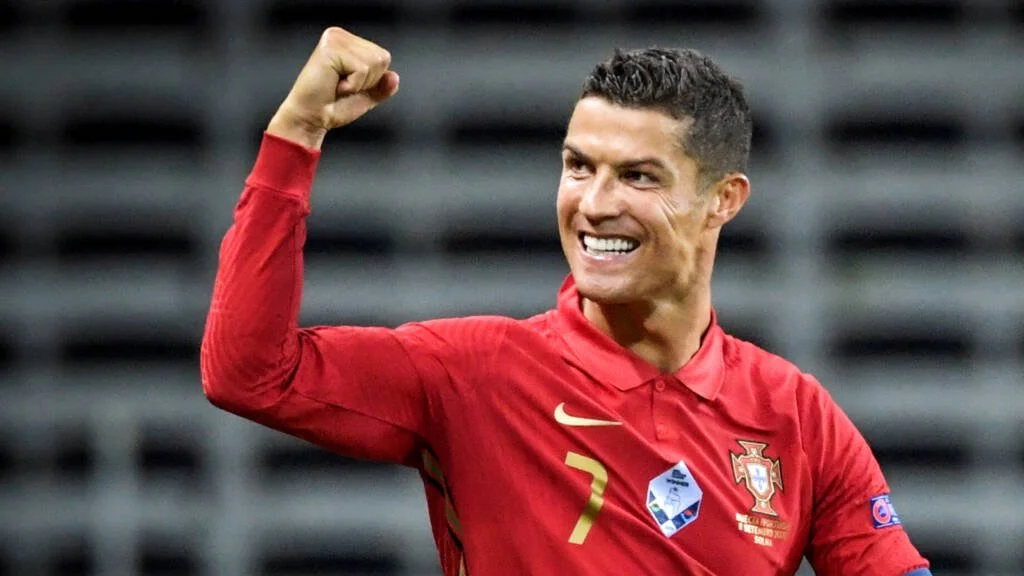FIFA and the Global Surgery Movement can unite for children's dreams.
Nearly 4 billion people love football, and the peak of its celebration is the FIFA World Cup, which was last held in Qatar. The FIFA World Cup is a global unifier that brings football fans together to cheer for their idols, phenomenal athletes living their childhood dreams. At the age of 15, one such athlete was diagnosed with a heart defect and was confronted with the heartbreaking possibility that his promising football career would end even before it started. Fortunately for him, the problem was fixed, thanks to a life-saving surgical procedure, and he was launched to fame in 2003 when he signed with Manchester United. This is the story of football legend Cristiano Ronaldo.
Christiano Ronaldo. Credit: karsten stalpaert
In late May, at the 77th World Health Assembly (WHA) convention in Geneva, Switzerland, member-state delegations will come together to discuss All for Health: Health for All. As this year's WHA rolls around, we are reminded of one of the commitments FIFA and the World Health Organization (WHO) made last May to “use the power of football to promote healthy lifestyles and equal access to health services.”
Like Ronaldo, millions of children worldwide dream of becoming famous athletes, engineers, astronauts, doctors, artists, and more. Sadly, unlike Ronaldo, many who suffer from surgical conditions like him may never be able to live out their dreams because they happen to be born in a part of the world where surgical care is virtually impossible to access.
Of the five billion people globally who currently lack access to safe, affordable, and timely surgical care, almost 2 billion of them are children. Every year, before their fifth birthday, over half a million children die of trauma and congenital abnormalities that can be treated with safe surgery. Most of these deaths could have been avoided if these children had been able to access safe and timely surgical care like Ronaldo.
Lack of access to surgical care can also cause significant disability, leaving dreams unfulfilled. Football is a highly physical sport that sees many of our favorite players injured. Famously, Alessandro Del Piero and Francesco Totti were able to return to the game thanks to surgery after suffering potentially career-ending injuries. A fracture that could be easily repaired can lead to permanent disability that not only stops kids from living full childhoods but also cuts dreams short and can lead to poverty due to the inability to work in adulthood.
Many footballers recognize the importance of surgery. Sadio Mané, whose father died due to lack of access to healthcare in Senegal, has used his football earnings to create a hospital in his hometown that provides surgical and medical care. Antonio Rudiger donated his Germany World Cup bonus to pay for surgeries in Sierra Leone. Bukayo Saka and Mesut Özil have paid for life-changing surgery for children in Nigeria and Brazil, respectively.
“Every year, before their fifth birthday, over half a million children die of trauma and congenital abnormalities that can be treated with safe surgery.”
While these football stars recognize how essential surgery is for their careers and fans, their incredible gestures are not enough to solve this crisis. About $300 billion is needed to scale up surgical services in 88 countries in low- and middle-income countries. However, low- and middle-income countries will lose $12.3 trillion without this investment in 15 years. The $300 billion tag seems expensive but pales compared to other expenditures. For example, the 2022 FIFA World Cup was estimated to cost $220 billion.
We therefore invite FIFA, FIFA World Cup partners, and other private contributors who financially supported the success of the 2022 World Cup to work with governments and other global health funders to create a much-needed global surgery fund. Such a fund will be used to train more surgeons, anesthesiologists, nurses, and other surgical providers and build and equip hospitals in low- and middle-income countries. Christiano Ronaldo and other public figures who have benefitted from the life-saving surgery could also use their global platforms to draw attention to the plight of children needing surgery worldwide. These children also deserve to have the opportunity to realize their dreams.
FIFA is not without fault and has been mired in scandal in recent times. There is an understandable lack of public trust. However, there is no denying the power for positive change that the backing of an institution like FIFA and its partners could make in the lives of children in need of surgery care.
Like Ronaldo, children around the world dream. But unlike Ronaldo, many's dreams are cut short because they cannot access surgical care when they need it. Let us come together as a group of almost 4 billion fans for the love of sport and our belief in making dreams come true. Together, we can use our power and our passion to help elevate surgery to the global arena as well.
